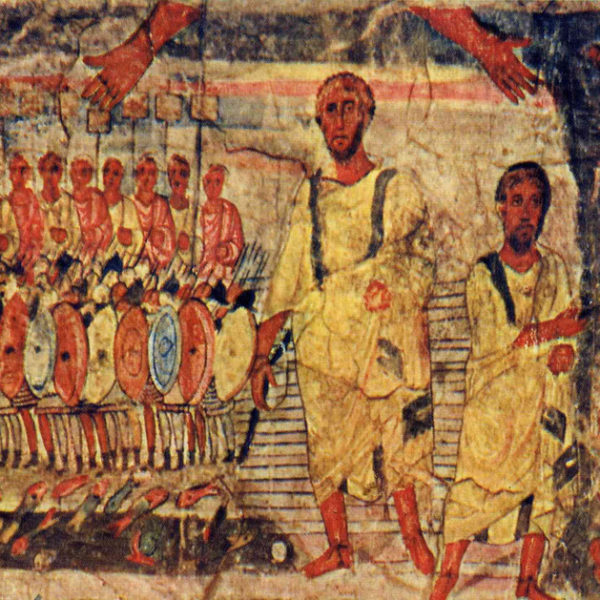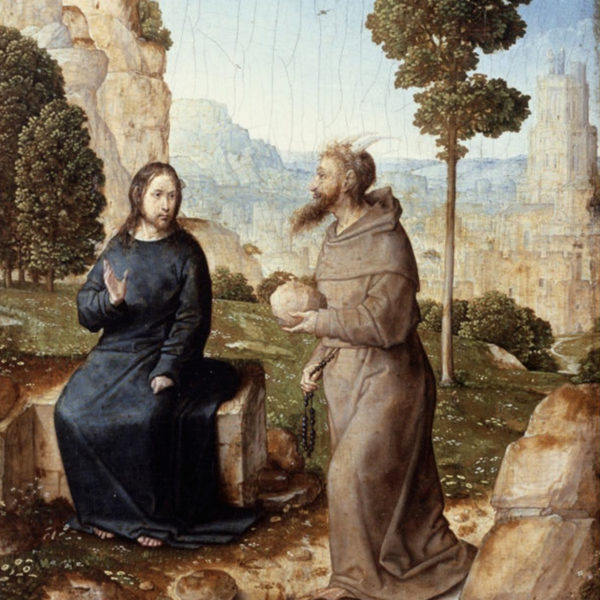
Fyodor Dostoyevsky in his masterpiece ‘The Grand Inquisitor’, as well as Lev Tolstoy in his The Gospel in Brief, both comment on, recapitulate, and in some manner ‘translate’, the story of Jesus’ temptation in the wilderness (Matt. 4:1-11; Mark 1:12-13; Luke 4:1-13) with varying interesting results. Let us compare Dostoyevsky, Tolstoy, and the Gospel accounts together to see how this story serves not only as Dostoyevsky saw them . . . nor only as Tolstoy saw them . . . but also as a profound critique of our current economic geopolitical situation, and pointing to our way out of the systems that enslave us.
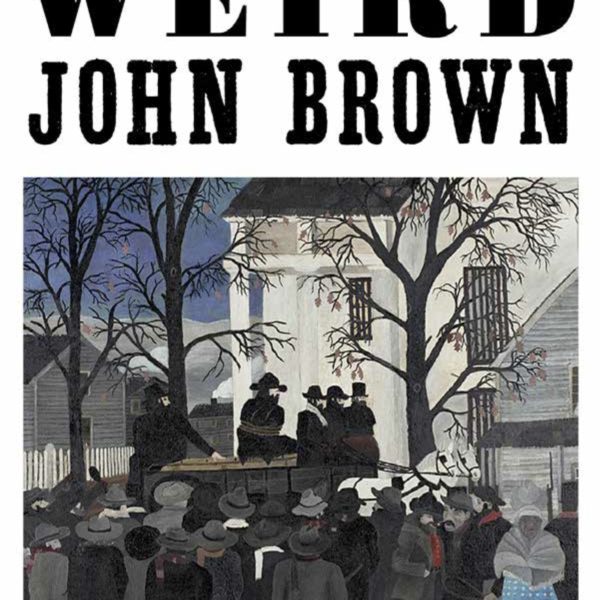
. . . In the book I think about what it would mean to see Brown as a “Great Criminal” who did wrong but can still be read as a sign of a divine violence that breaks the hold of the slave system on social imaginations and so makes possible not just new ways of seeing the world, but new ways of acting, new ways of connecting with others, and new ways of deliberating together.

I think that a politics of penitence and repair can disrupt old divisive racial patterns, potentially enabling the emergence of new racial communities not marked by old forms of racial hatred and violence. Smith’s argument for penitence and repair is compelling and I do think that a Christian political theology calls upon us to consider these two important practices. Smith presents a theological discussion of pardon that eventually takes us to repentance and repair when addressing racial wounds.

A bishop recently said that 90% of the homilies he has ever heard can be boiled down to two words: “Try harder.” Of all the things that Ted Smith’s book does well, the most compelling for me is his attempt to critique the ethical confines to which reflection on politics and violence — along with so much else — is often limited.

In conjunction with the Marginalia (part of the LA Review of Books), Political Theology Today has organized a symposium on Ted Smith’s extraordinary new book Weird John Brown: Divine Violence and the Limits of Ethics. Over the coming two and a half weeks, we will host responses to the book from E. Brooks Holifield, William Cavanaugh, Peter Ochs, Keri Day, and Andrew Murphy, concluding with a response to the responses by author Ted Smith. Here is the first response, from E. Brooks Holifield of Emory University.

In the account of the slave with the spirit of divination, Paul, Silas, the Philippian jailer, and his family we encounter dynamics of agency and constraint, of freedom and slavery. There are a number of surprising instances of human action within this narrative which nonetheless speaks powerfully of the power and activity of God.
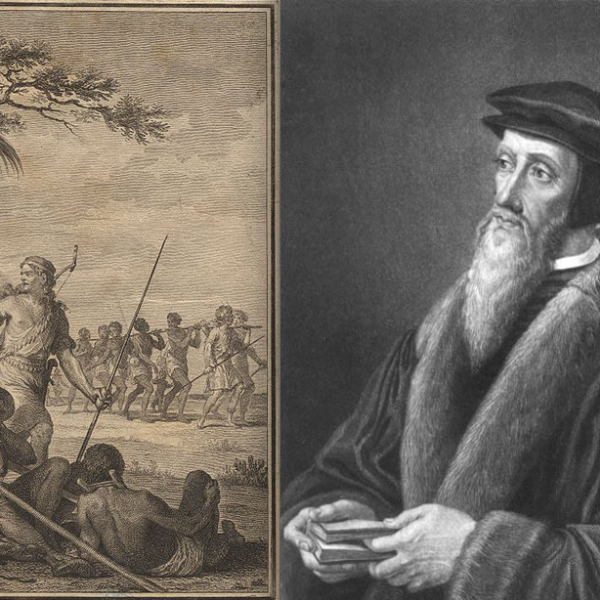
In a sermon on 1 Tim 6:1-2, John Calvin commented,
“…but they were slaves, of the kind that are still used in some countries, in that after a man was bought the latter would spend his entire life in subjection, to the extent that he might be treated most roughly and harshly: something which cannot be done amidst the humanity which we keep amongst ourselves. Now it is true that we must praise God for having banished such a very cruel brand of servitude.”[1]

In contemporary Western society we like to pride ourselves on having done away with what we would term ‘archaic’ systems, such as slavery. And so, when we hear such a system mentioned or even alluded to in a text like John 8:31-36, it is easy to write Jesus’ words off as anachronistic to our more ‘civilized’ approach. If we’re among the majority of such Westerners who know of no slavery in our ancestral background (or, if we do, whose ancestors were the slaveholders), then we may be tempted to object with Jesus’ disciples:
“‘We are descendants of Abraham and have never been slaves to anyone. What do you mean by saying, “You will be made free”?’” (8:33)
The first disciples resisted Jesus’ slave imagery, but not without irony. After all, the children of Abraham with whom they identify are the same children of Jacob who traveled to Egypt and were made slaves. Moses and Aaron led their ancestors through the wilderness so that they—the disciples, all the Jews, and by extension believers today—are children of the exodus; children for whom the reality of slavery is very real and near. And yet they resist this, practicing a form of selective amnesia rather than think of themselves as slaves.
The scathing criticisms of private property that we find in the mouth of Jesus are well-known. “Go, sell what you have,” he tells the rich man who asks for the secret of eternal life (Mark 10:21; Matthew 19:21; see also Luke 12:33). Again and again, we encounter the polemic against property, the possession of which is regarded as an evil and as a massive hindrance to joining the kingdom of God. Jesus valorises simplicity over luxury and forgoes the influence and power that comes with wealth. In short, everything about him stands against the deep values of the Hellenistic propertied classes. In the words of G.E.M. de Ste. Croix, “I am tempted to say that in this respect the opinions of Jesus were nearer to those of Bertholt Brecht than to those held by some of the Fathers of the Church and by some Christians today” (Ste. Croix 1981: 433).
I am less interested here in the twisting and turning by later exegetes to ameliorate these embarrassing texts, and my concern for now is not the Christian communist tradition that finds inspiration in these and other texts (Acts 2:44-5; 4:32-5). Instead, I suggest that this implacable opposition to property has a far deeper reason. Simply put, the very definition of private property, invented by the Romans a little over a century before the time of Jesus, is based upon slavery. That is, private property relies on the reduction of one human being to the status of thing (res) that is “owned” by another human being. Let me explain…..
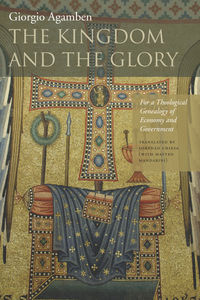
The Kingdom and the Glory: For a Theological Genealogy of Economy and Government, which continues Agamben’s interest in the history of sovereignty and the exception, brings the discourse of theology to the forefront of questions about the nature of modern political economy and government. Agamben’s claim is that theology has left its indelible signature on and therefore deeply animates modern life. But how? […]
